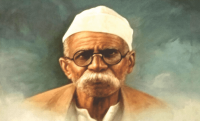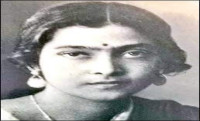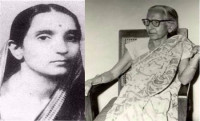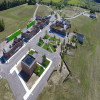Great social reformer Mahatma Jyotiba Phule Jayanti
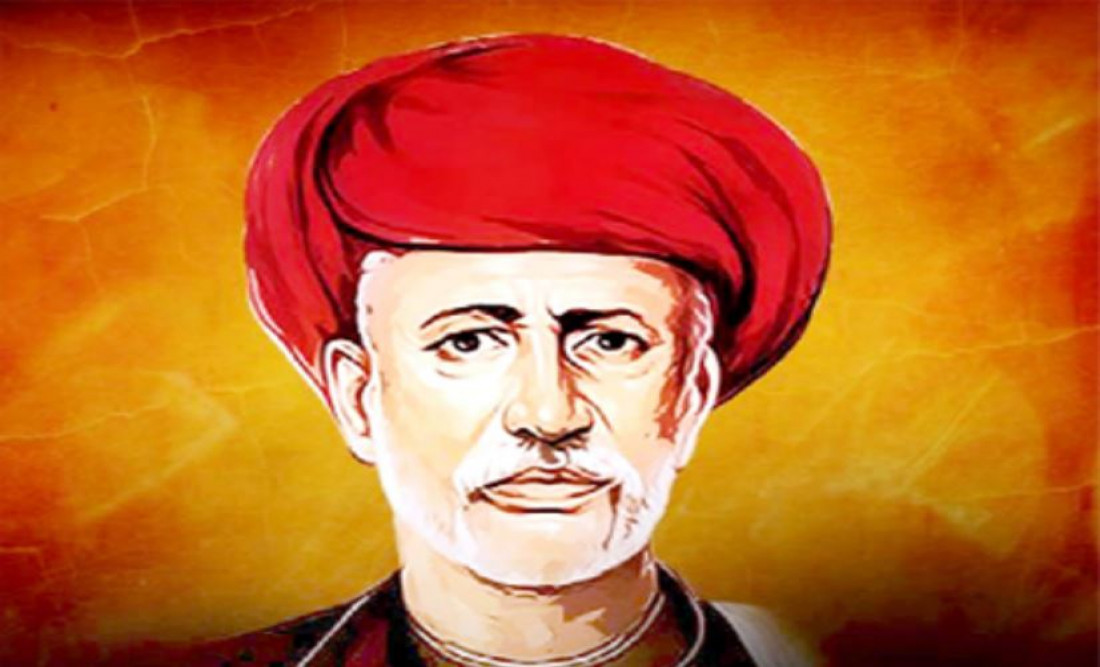
Mahatma Jyotiba Phule (Jyotirao Govindrao Phule) received 19 V. Considered to be the chief mobilizer of the century. He fought relentlessly to remove many evils prevalent in Indian society. Jyotiba has done remarkable work for the benefit of untouchables, women education, widow-marriage and farmers.
He was born on 11 April 1827 in Satara, Maharashtra. His family was very poor and used to work as gardener in gardens for living. Jyotiba was only one year old when her mother died. Jyotiba was brought up by a midwife named Sagunabai. Sagunabai gave her mother's love and affection.
At the age of 7, Jyotiba was sent to study in the village school. He had to leave school due to caste discrimination. Even after leaving school, there was a desire to study in him. Sagunabai helped the child Jyotiba to study at home. He used to read books in the time left after domestic work. Jyotiba used to discuss various topics with the elders of the neighborhood. People were very impressed by his subtle and logical things.
Arabic-Persian scholar Ghaffar Baig Munshi and Father Lijit Saheb were neighbors of Jyotiba. Seeing the interest of the child Jyotiba's talent and education, he tried to send her back to school. Jyotiba started going to school again. He always came to school for the first time. Commentary on Religion - Upon hearing the comment, he was curious as to why there is so much inequality in Hinduism. What is caste-discrimination and varna system? He used to think about society, religion and country with his friend Sadashiv Ballal Gondwe.
They do not know the answer to the question - why is such a big country a slave? He hated slavery. He felt that the reform of this country divided on castes and creeds is possible only when the mentality of the people will improve. At that time, class discrimination was at its peak in society. The condition of women and downtrodden was not good. They were denied education. Jyotiba felt very sad about this situation. He pioneered social struggle for the education of women and Dalits. He believed that - in the mothers who put sanskars on the children, the future seeds of those children are there. Therefore, it is necessary to educate girls.
He decided that he would arrange schools for the education of the underprivileged. At that time, the walls of caste, high and low were very high. The path of education of Dalits and women was closed. Jyotiba used to teach Dalits and girls in his house to break this system. He used to bring the children in hiding and bring them back. As his supporters grew, he started running the school openly.
After starting school, Jyotiba had to face many difficulties. Nobody is ready to teach in their school. Even if someone teaches, he has to stop this work soon under social pressure. Who should teach in these schools? This was a serious problem. Jyotiba taught her wife Savitri how to solve this problem and then trained her in the Normal School of Missionaries. After training, she became the first trained female teacher of India.
People of the society got angry due to this work of theirs. When Savitri Bai went to school, people used to humiliate her in various ways. But that woman continued to do her work even after drinking a sip of insult. On this, people threatened to expel Jyotiba from the society and expelled her from her father's house.
After the renunciation, the husband and wife had to face many difficulties. But he did not fall short of his goal. It was a dark black night. The lightning was blazing. Mahatma Jyotiba was late in returning home. He was moving towards the gallop house. Lightning flashed, he saw two men carrying gleaming swords in their hands on the way forward. He accelerated his pace and reached near him. Mahatma Jyotiba wanted to know him and know the reason for walking in such a night. He told that we are going to kill Jyotiba.
Mahatma Jyotiba said - what will you get by killing them? They said - We will get money, we need money. Mahatma Jyotiba thought for a moment and then said - Kill me, I am Jyotiba, if you are interested in killing me, then I will be happy. On hearing this, their swords were left out of their hands. He fell at the feet of Jyotiba, and became his disciple.
Mahatma Jyotiba Phule established an organization called "Satya Shodhak Samaj". The Satya Shodhak Samaj was different from other organizations of that time due to its principles and programs. The Satya Shodhak Samaj spread soon throughout Maharashtra. People of the Satya Shodhak Samaj have opened schools for the education of Dalits and girls everywhere. Opposed to touching and fingering. Moved the movement to protect the interests of the farmers.
During his lifetime he also wrote many books -
1 third gem,
2 Chhatrapati Shivaji,
3 King Bhosla's fortnight,
4 Brahmins Tact,
5 farmer whip,
6 The Untouchables' Kaafiyat.
Due to the struggle of Mahatma Jyotiba and his organization, the government passed the 'Agriculture Act'. He also wrote several books to bring out the truth of religion, society and traditions. He died on 28 November 1890.
Baba Saheb Bhim Rao Ambedkar was very impressed with the ideals of Mahatma Jyotiba Phule and he said -
"Mahatma Phule the greatest Shudra of modern India who made the lower classes of Hindus conscious of their slavery to the higher classes who preached the gospel that for India social democracy was more important than independence from foreign rule.
Mahatma Phule was the greatest Shudra of modern India who made the backward caste Hindus aware of being slaves of the forward caste Hindus, who taught that social democracy is more important to India than freedom from foreign rule. "
Throughout its life, the public honored this true leader who fought for the poor, Dalits and women with the title of 'Mahatma' with respect. He will always be remembered as the strong guard of society.

Manoj Bhiva
Manoj Bhiva is a dedicated writer who loves to write on any subject. Manoj Bhiva maintains a similar hold on politics, entertainment, health, abroad articles. Manoj Bhiva has total experience of 3 years in web and Social. Manoj Bhiva works as a writer in Wordict Post.
Zelensky Demands Russian Withdrawal from Nuclear Power Plant in Zaporizhzhia
Posted on 16th Aug 2022

Holocaust allegation by Palestinian president rejected
Posted on 17th Aug 2022
